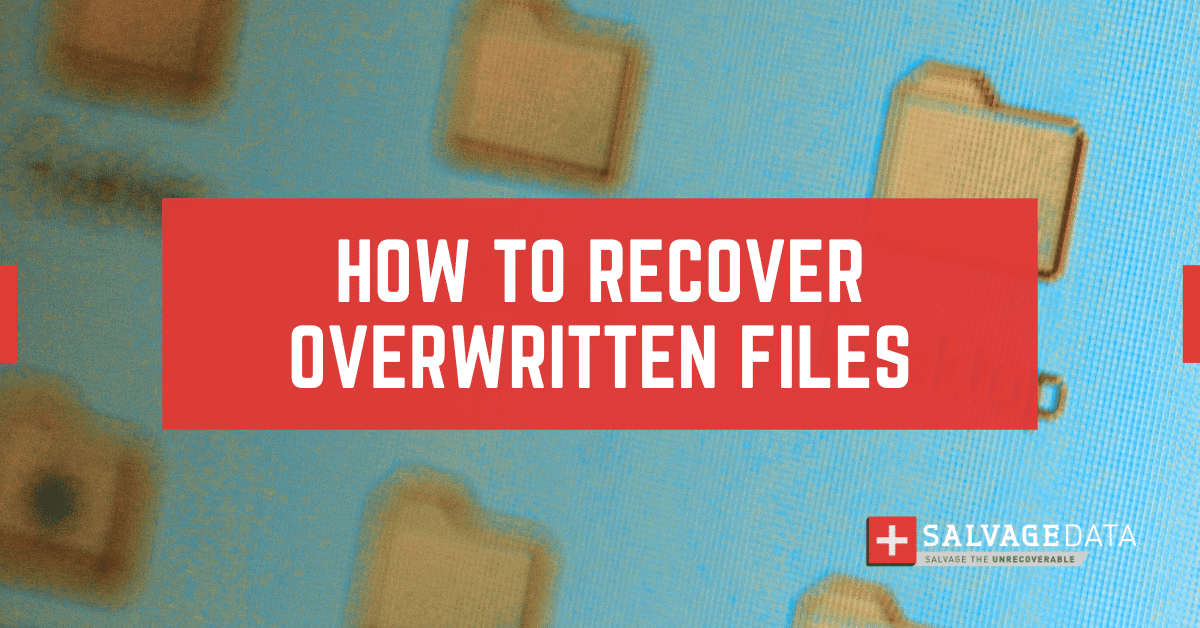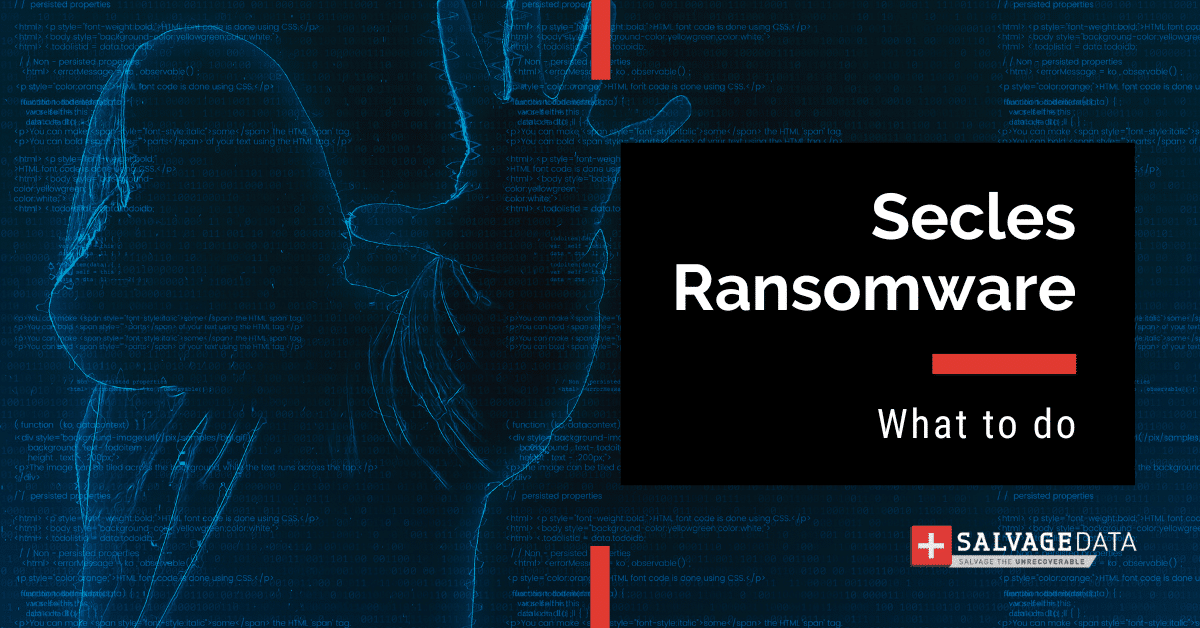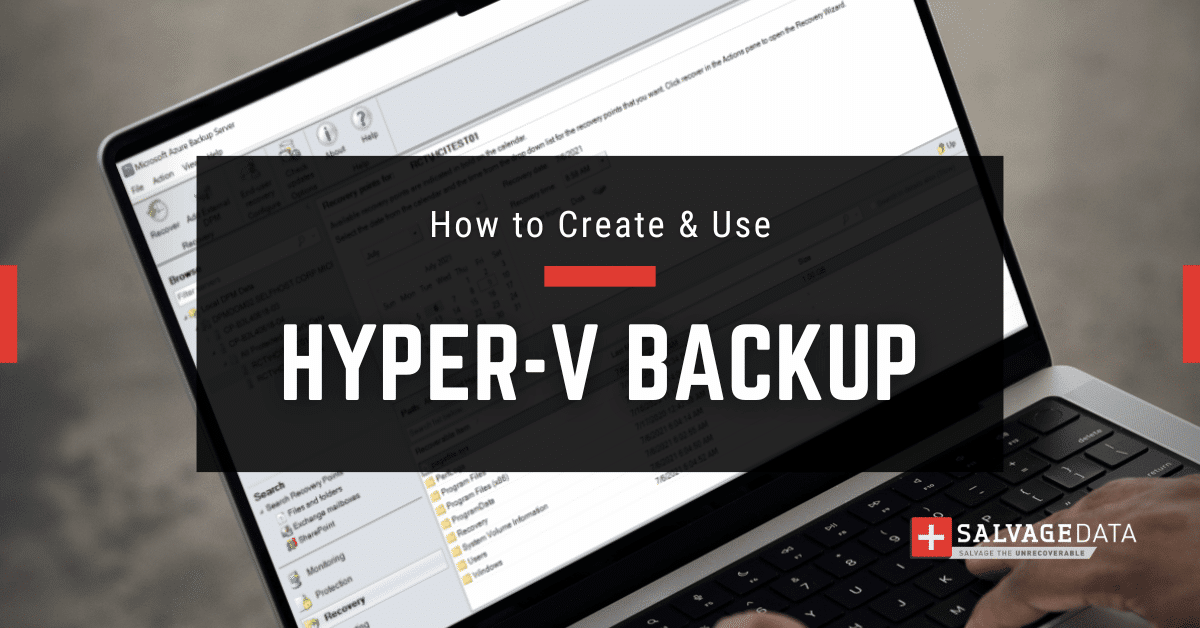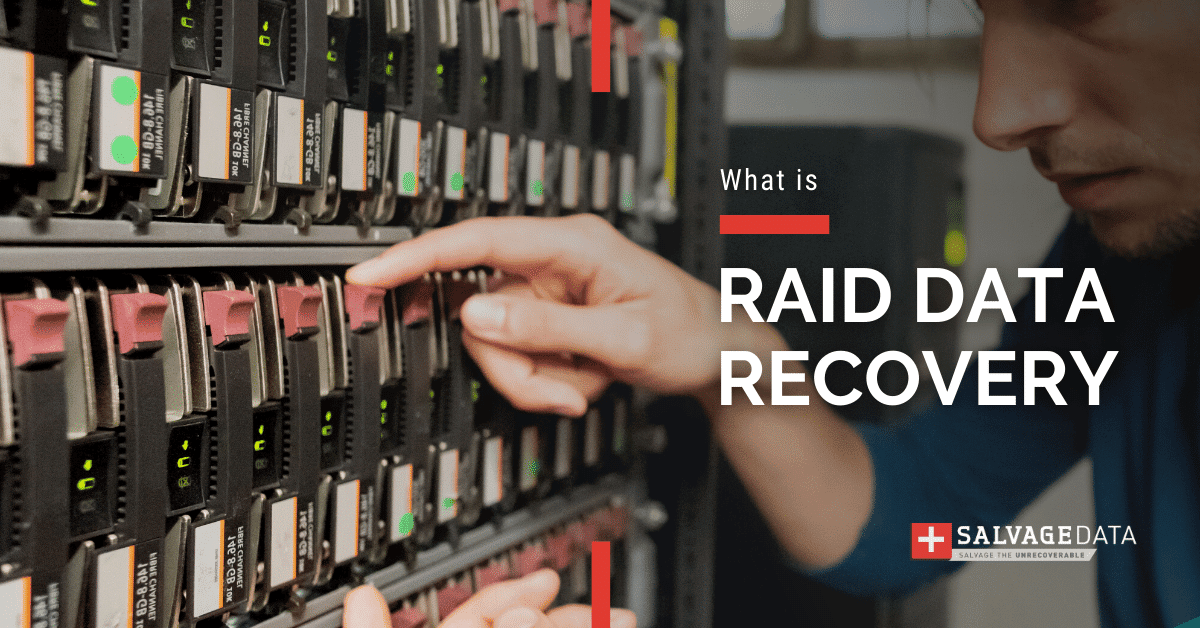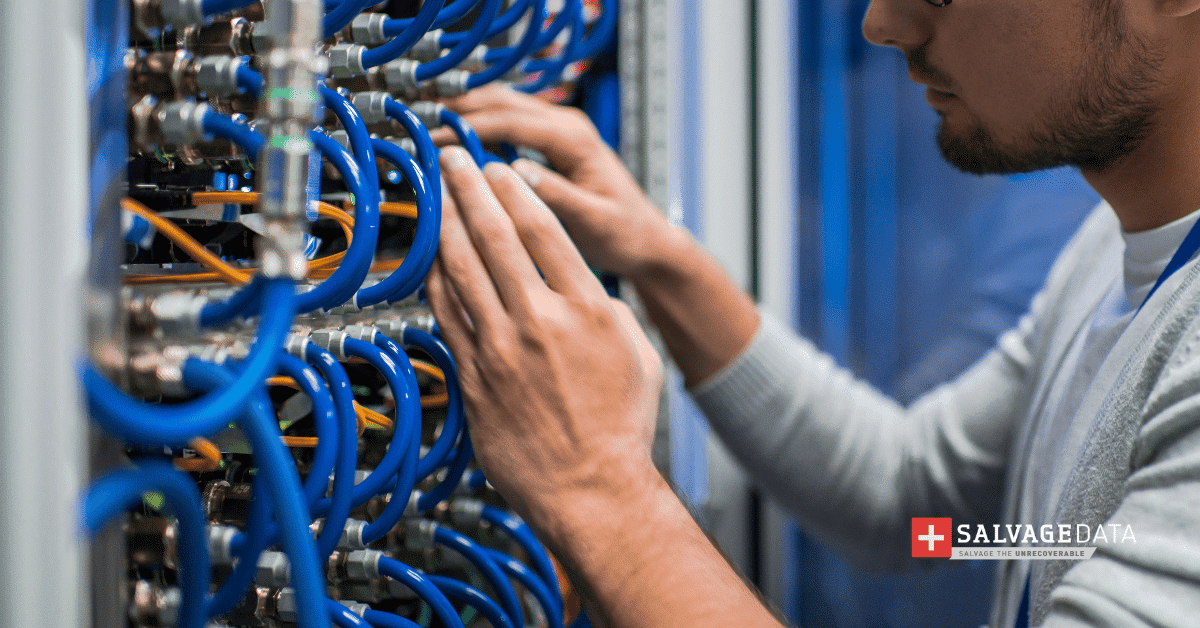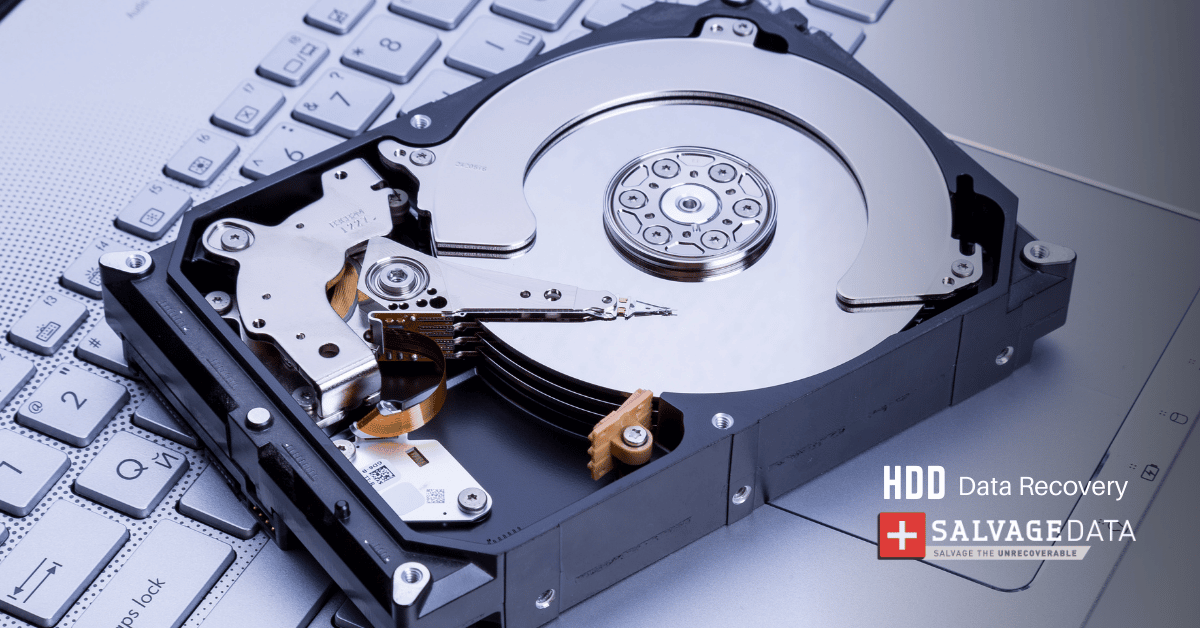Recent Articles
How To Recover Overwritten Files
The Snowflake Data Breach: A Comprehensive Overview
Mac Not Recognizing External Hard Drive: Quick Fix Solutions
How Multi-Cloud Backup Solutions Can Prevent Data Disasters
Capibara Ransomware: What is it & How to Remove
What Should a Company Do After a Data Breach: The Ticketmaster Incident
Secles Ransomware: Removal Guide
What To Do When Your Chromebook Freezes
How to Create Hyper-V Backup
What Is The Best Data Recovery Software For PC
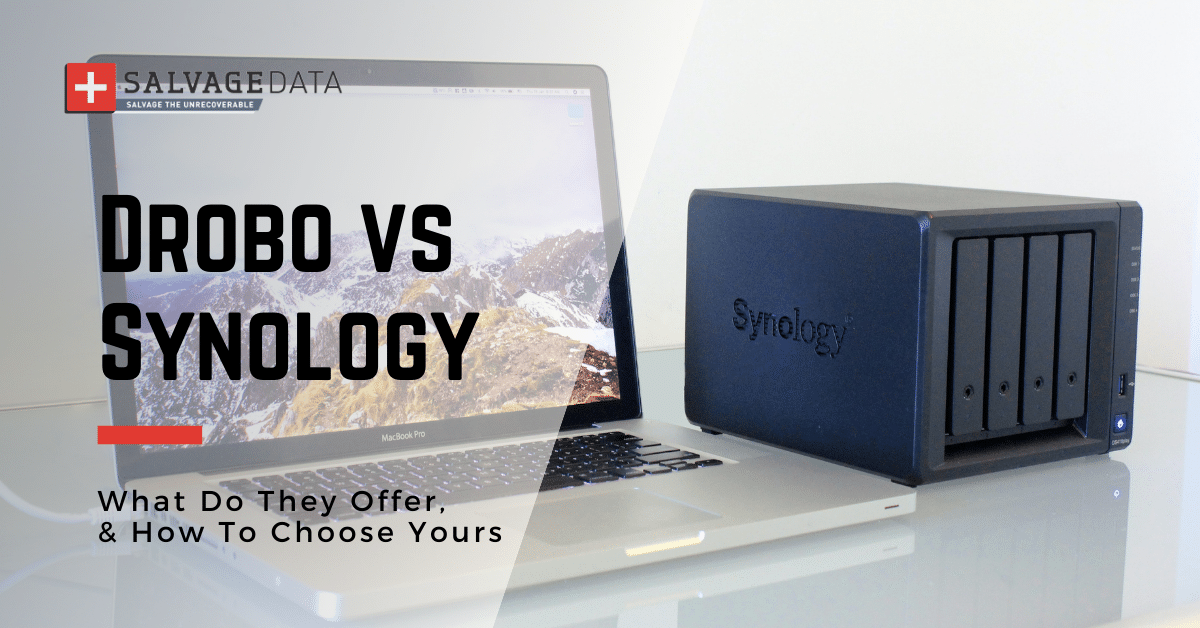
I think there's an issue with my storage device, but I'm not sure Start a free evaluation →
I need help getting my data back right now Call now (800) 972-3282
Drobo and Synology are two of the well-known companies to provide NAS (network-attached storage) devices for both individuals and businesses. Each one of them offers models that best fit different objectives, budgets, and storage capacities.
Knowing what you need and which is the goal is the important thing when looking for your new NAS device.
Sometimes you may not need a NAS, since a free cloud service can be enough for your file storage. But, if this is not your case, the best thing is to look for NAS models, see their specifications, and also where you’ll connect them. There is the best NAS for a MAC, for a home, and for enterprises and small businesses. Get to know which one is the best for you.
Top Summary: Choosing the best NAS device for your specific needs can prevent money loss. Sometimes it can be that your company needs the most robust device. But it may also be that, for your purpose, the simplest of the NAS available for sale will suffice.
Why you shouldn’t just rely on Cloud storage
The number of cloud storage users around the world continues to grow. This is not a surprise when you list the benefits of storage like Google Drive, Azure, or iCloud.
Pros of Cloud Storage:
- space scalability,
- customizable access,
- automated backup options,
- convenient data-sharing features,
- Low maintenance costs.
All this makes online storage a universal solution that can comply with both private users’ and enterprises’ requirements.
At the same time, data security concerns and management limitations are some of the most common cons about cloud storage and the one that drives people in favor of home servers.
Cons of Cloud Storage:
- The level of security is dependent on the service provider
- Shared access control makes the system vulnerable to insider threats
- Cybercrimes and ransomware attacks are on the rise
Whereas hosting corporate data in the cloud implies shared responsibility, you’re supposed to rely on the data protection practices of your service vendor. This, in part, takes away your control over the security of your information.
More importantly, the pandemic-induced massive shift of businesses to remote administration has resulted in a significant increase in cybercrime, making the issue of data security even more acute than before. According to the report provided by FintechNews, cloud-based attacks have risen 630% between January and April 2020, meaning that corporate and sensitive data stored in the cloud is currently at significant risk.
Another problem is that cloud services don’t always provide you with full control and admin capabilities — no matter if you are the customer or file creator. This can also be a significant inconvenience in terms of data management, particularly if your line of business involves frequent collaborations or the exchange of large amounts of data.
And then there’s an alternative that allows collaboration and data storage for your network. Network-attached storage, aka NAS, are devices that connect your computer to others, creating a network.
Summary: Although cloud-based storage is rising for its simplicity and low maintenance cost, you should be aware that it’s not a perfect way to rely on all data about your company. You can still use cloud services, our advice here is to add a layer of security backup with other spaces to store your data, such as a NAS device.
What is a NAS server
NAS stands out for Network-Attached Storage, a kind of storage device that allows sharing of data among different user groups. It can also be accessed from any machine on the network, or from anywhere in the world via the internet.
NAS is used to facilitate the storage and management of data. These are reliable, flexible, minimal-maintenance servers that can compound potential growth and quickly scale up to accommodate new users or growing data, offering advanced administration options for better file management.
What’s more, a NAS-based system can be immensely handy for backing up and syncing data across multiple computers and mobile devices. Compared to cloud services, like DropBox or OneDrive, backing up to local storage is also proven to be much faster, as well as recovering from a system crash or restoring an accidentally deleted file.
It’s important to remember that a NAS device demands security protocols to follow in order to protect the data in it. It’s part of your job here to guarantee high-level security software is running to avoid risks.
Summary: NAS is used to facilitate the storage and management of data. They have several specifications that can be combined to suit any purpose. You can use a NAS device at your home, small business, or enterprise. Just remember to be careful with your device structure as much as protecting it from ransomware.
Drobo vs Synology
Whereas each brand naturally targets different audiences and has a range of models to suit different needs, comparing them abstractly can be pretty challenging. There are budget-friendly home backup systems, powerful high-end hardware servers that are better suited for large companies or business purposes, devices that fit the video or design needs, and plenty of alternatives to choose from.
With that in mind, in this article, we’ll go through some common points of three popular Synology and Drobo products to give you an idea of how NAS devices can be used most effectively, and what features you should look for when deciding yours.
RAID Calculator: Before deciding for a brand, you can decide which configuration you need. Learn the RAID configuration requirements, redundancy, parity, and disk availability with our real-time RAID calculator.
Best NAS for home: Synology DiskStation DS220j
Let’s start with Synology’s DiskStation DS220j — a budget entry-level NAS. This configuration is designed for anyone who’d like to get a much more robust and flexible backup system for their home compared to what can be offered by a traditional external hard drive.

The DS220j supports up to 32TB of raw storage with two 16TB hard drives — which should be more than enough for most home backups, — and can be configured in RAID 0, 1, and JBOD.
Despite its compact size, this nimble device is also able to provide you with excellent performance, where you can count on reading and write speeds from 114 MB/s to 118 MB/s, as well as effective multitasking achieved through an improved quad-core processor Realtek RTD1296 and 512 MB RAM. With the offered price and ease of use of DiskStation Manager (DSM), which offers enterprise-class functionality, the Synology DS220j is considered one of the best available home NAS devices.
Best NAS for Mac: Drobo 5N2 Gold Edition
While most NAS devices are compatible with Windows, Mac, and Linux machines, it is the Drobo 5N2 that is currently the most popular among Mac users. Not only because of its easy-to-use interface, Apple Filing Protocol (AFP) support, and macOS Time Machine support but also due to its simple tool-free design that makes adding or removing discs much easier.
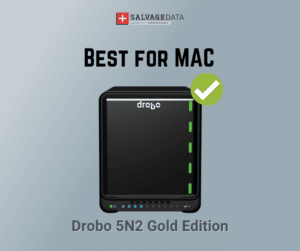
The Drobo 5N supports all common RAID configurations and even offers its own BeyondRAID feature that can be used to provide increased flexibility over traditional RAID. More importantly, using this technology, the Drobo 5N2 is able to protect yours even in the event of multiple disk failures, and completely without any intervention on your part. It also provides a one-click switch from single to dual disk redundancy, providing enterprise-grade double parity data protection when needed.
Another amazing thing about Drobo 5N2 is that it enables Hot Data Caching via Drobo Accelerator Bay, which intelligently uses high-performance flash memory to give you the fastest access to your data. Also, to maintain the maximum capacity of the Drobo 5N2, the Drobo Accelerator Bay features the industry-standard mSATA SSD, leaving all five 3.5-inch bays available for high-capacity hard drives.
Finally, while anyone can implement it into their storage system, the 5N2 is a particularly suitable option for die-hard Mac users who don’t mind paying a little extra for a range of specialized features.
Best NAS for business and enterprise: Synology DiskStation DS2419+II
The Synology DiskStation DS2419+II is a powerful NAS device that comes with 4GB of RAM by default (which can be expanded), 192TB of raw storage capacity (with an expansion unit), and is provided with a range of enterprise and consumer applications for efficient management and administration of all NAS functions. Being equipped with Synology’s proprietary operating system, DiskStation Manager (DSM) — which is considered one of the most user-friendly operating systems — DS2419+II is also very easy to set up, even for novice users.
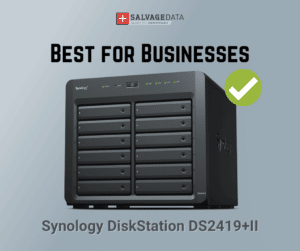
Excellent performance is another great thing about this device. Through a 10 GbE connection and using Seagate IronWolf NAS drives in RAID 5, sequential read and write speeds of up to 9 Gb/s and 4 Gb/s can be achieved, respectively. Finally, being a high-capacity and scalable NAS with on-the-fly volume expansion capability, upgradable memory configuration, and diversified add-in card options, DS2419+II is rightfully considered one of the best data storage solutions for modern business — while features like Active Backup for Business, Hyper Backup, Desktop Backup, and Active Backup for Office 365/G Suite makes it a perfect solution for smaller teams seeking to safeguard critical data.
Summary: When choosing a NAS device for your business or home you must establish your goal first. All brands and models have their pros and cons, but they also have a purpose in their configuration. Analyze how much storage you need and your budget, and combine it to invest in the best device for your goal.
Best NAS overall
| Synology DiskStation DS220j |
Drobo 5N2 Gold Edition |
Synology DiskStation DS2419+II |
|
|---|---|---|---|
| Best for | Personal | AppleMac | Business |
| Pricing* | $429 to $1.189 | $499 to $849 | $1,757 |
| Cooling | 1 x 92mm fan | 1 x PWM 120mm fan | 2 x 120mm fans |
| CPU Model and Frequency | 1.4GHz Realtek RTD1296 (quad-core) | 1.6GHz Marvell Armada XP MV78460 (quad-core) | 2.1GHZ Intel Atom C3538 (quad-core) |
| Dimensions | 5.9 x 7.3 x 10.3" / 149.9 x 185.4 x 261.6 mm | 5.9 x 7.3 x 10.3" / 149.9 x 185.4 x 261.6 mm | 11.8 x 10.6 x 13.4" / 300 x 270 x 340 mm |
| OS Compatibility | Windows 7 or later, macOS 10.11 or later | Windows 8, Windows 10, macOS 10.10 or later | Windows 7 or later, macOS 10.12 or later |
| RAID Mode | Synology Hybrid RAID 0 RAID 1 |
BeyondRAID™️ RAID 1 RAID 5 RAID 6 |
Synology Hybrid RAID 0 RAID 1 RAID 5 RAID 6 RAID 10 |
| Number of Bays | 2 | 5 | 12 |
| Compatible with | 3.5" SATA HDD 2.5" SATA HDD (with optional 2.5" Disk Holder) 2.5" SATA SSD (with optional 2.5" Disk Holder) |
3.5" SATA II / III hard disk drives or solid state drives
And one (1) mSATA solid state drive |
3.5" SATA HDD 2.5" SATA HDD 2.5" SATA SSD |
| Connectivity | 1x RJ-45 1GbE LAN Port 2x USB 3.2 Gen 1 Port |
2x Gigabit Ethernet Ports | 4x RJ-45 1GbE LAN Port 2x USB 3.2 Gen 1 Port 1x Expansion Port |

